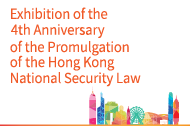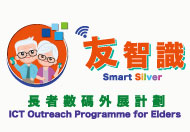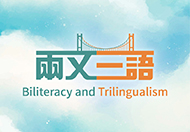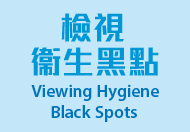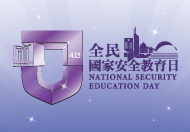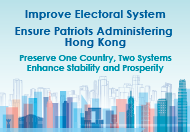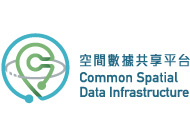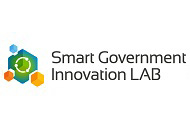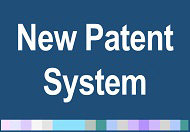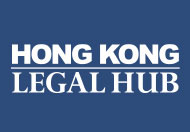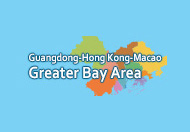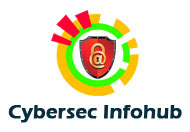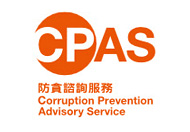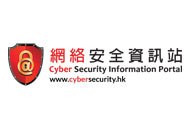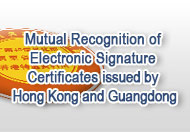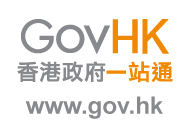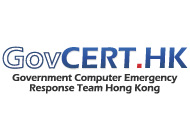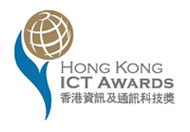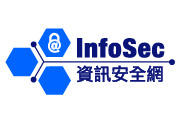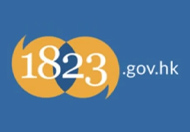Public Comments on the "Consultation Paper on the Review on Administration and Assignment of Internet Domain Names and Internet Protocol Addresses in Hong Kong"
| Reference No. |
:
|
DN31 |
| Date of Submission |
:
|
17.07.2000 |
| Submitted by |
:
|
Mr J. Scott Evans Chairman Domain Subcommittee Special Committee on the Internet The International Trademark Association |
INTRODUCTION
The International Trademark Association (INTA) takes this opportunity to offer its response to the request for comments on the "CONSULTATION PAPER ON THE REVIEW ON ADMINISTRATION AND ASSIGNMENT OF INTERNET DOMAIN NAMES AND INTERNET PROTOCOL ADDRESSES IN HONG KONG" which is to be considered by the Information Technology and Broadcasting Bureau. INTA is a 122-year-old not-for-profit organization dedicated to, among other things, educating business, the media and the worldwide public on the proper use and importance of trademarks. We have more than 3,700 members in 120 countries around the world.
1. CREATION AND OPERATION OF A GOVERNING AUTHORITY
INTA believes that a non-profit organization would be the best vehicle for the new Hong Kong ccTLD governing body. This organization/body should be self-financed and separate from the JUCC. And, given the valuable role trademarks play in the global economy and in e-commerce, the board of directors should include one or more directors from the intellectual property community with the skill and expertise necessary to assist the board in dealing with trademark issues that arise for domain name disputes as they relate to registered trademarks.
Eventually the organization/body may wish to transform to a membership-based body. However, INTA believes that the new governing body may wish to explore other possibilities before deciding on a final structure. INTA also feels that the transfer of governing authority to the new non-profit organization should be formalized in a written agreement between the government and the new non-profit organization. Such an agreement would serve to delineate the authority of the new governing body and specifically set forth the new organization's responsibilities. Such an agreement would also serve the purpose of legitimizing the new organization's role in the governance of the .hk ccTLD.
2. REGISTRAR RESPONSIBILITIES
Because the Computer Services Centre of the Chinese University of Hong Kong ("CUHK") is currently the registrar for ccTLD's in Hong Kong, it will be important for the new governing body to have authority and control over the CUHK to avoid conflicts similar to those ICANN and InterNic experienced.
It seems that having the government take responsibility for the registration of .gov.hk domain names will entail the same effort that forming a body to deal with administration of the Hong Kong system in general. Thus, it may be more practical to keep all registrations under one roof, while developing specific requirements for registrants of .gov.hk domains (i.e., providing a valid government charter, and any other relevant official documentation) which are strictly enforced.
Along a similar vein, since the JUCC has been the party responsible for registration of the .edu.hk since the inception of the Hong Kong ccTLD system, it seems that there is no practical reason to change, if the JUCC is in agreement. The same is true for .com.hk, .org.hk, and .net.hk domain names. That is, the JUCC has been responsible all along and should continue with the registration of these domains. However, as it is generally anticipated that there will be a surge in demand for the registration of domain names in Hong Kong, the JUCC should have the ability to employ agent/registrars, as practiced in other ccTLD jurisdictions. Nevertheless, such agents should be subject to the strict control of the JUCC and follow all policies established and adhered to by the JUCC including, but not limited to, adherence to all dispute resolution policies adopted by JUCC and approved by the new governing organization. INTA agrees that this control should incorporated into a formal agreement between JUCC and any third party agent whereby JUCC would retain the necessary control and authority to remove any agent that did not comply with the governing principles and policies established by the new governing body and the JUCC.
3. FAMOUS MARKS LIST
History has shown that owners of well-known marks are often victims in the battle with cybersquatters. While the concept of creating a reserved list of domain names to protect well-known, international trademarks, service marks and brand names seems attractive, we do not believe that it is a practical solution. The World Intellectual Property Organization ("WIPO") unsuccessfully attempted to create this type of list to assist with the regulation of the gTLDs, .com, .net and .org. Because there is no global definition of "famous" or "well-known," WIPO was not successful in this endeavor. We believe that the registry would encounter similar difficulties and would be more successful by instead incorporating a dispute policy such as ICANN's Uniform Dispute Resolution Policy ("UDRP"). This type of policy would offer protection for intellectual property owners against abusive registrations. The UDRP has been carefully drafted and considers the existing laws and regulations governed by international treaties to protect mark owners.
4. ELIGIBILITY FOR REGISTERING DOMAIN NAMES
INTA encourages the implementation of chartered or restricted TLDs that would enable a business to have a second-level domain category that corresponds to the business nature of the applicant. In order for this to be successful, it is very important that the criteria for registration in the chartered TLD be strictly enforced. In the event that disagreements about eligibility occur, a mechanism to enforce the restrictions must be in place. INTA believes that the UDRP could be amended to allow parties that believe there has been a charter violation to obtain objective review by an independent panel.
Within chartered and unchartered domain names, the Internet generally allows for the registration of domain names on a first-come, first-served basis if the applicant meets the registration requirements. While this is sometime problematic in protecting the rights of trademark holders, INTA realizes that it would impose considerable burdens for registries and registrars to evaluate and decide on the eligibility of one application over another. As such, we accept the first-come, first-served registration process as long as there are safeguards in place for trademark, service mark and brand protection. The ICANN Uniform Dispute Resolution Policy provides such protection and we strongly encourage its adoption.
The registry, as an administrative body dealing with management of domain name registration, should take all measures to minimize the possibility of intellectual property infringement. We recognize the difficulty of this responsibility and understand that it is not possible for the registry to make educated, legally accurate decisions regarding various rights-holders. Thus, we agree that the responsibility lies with the applicant to declare that, to its knowledge, the domain name registration does not infringe upon the rights of another party. However, this statement must be clearly set forth in the domain name registration agreement between the JUCC and the domain name holder. In addition, the registration agreement must provide severe consequences for any domain name holder that chooses to make misleading or false representations. Without such serious consequences, any representations made by the domain name registrant would merely be a fruitless exercise.
5. POLICIES FOR DOMAIN NAME REGISTRATION
It is generally anticipated that there may be a "rush" to register domain names in Hong Kong. This raises the issue of cybersquatting. Nevertheless, if the JUCC adopts the UDRP, it will have gone a long way towards deterring would be cybersquatters. Although there are no guarantees that a trademark holder will win back a domain or stop a third party registration under the UDRP, its adoption will at least offer the most cost efficient method of protecting trademarks.
INTA is not opposed to allowing companies to own more than one domain name provided that the new governing body adopts policies such as ICANN's UDRP that will allow trademark owners the opportunity to thwart those companies that would choose to engage in nefarious cybersquatting activities. The JUCC should also permit the free transferability of domain names between parties, especially, for example, when corporations are shut down, or bought out by other companies. There are sufficient trademark laws in place in Hong Kong to put any would be purchasers of the domain names of registered trademark holders on notice that violation of those rights will be dealt with harshly under law. In addition, the implementation of the UDRP will also offer protections for trademark holders.
It has also been proposed that only those entities with a Hong Kong legal presence be permitted to register a Hong Kong domain. While in other Asian countries, the registration of a ccTLD is an indicator of a legal presence in that region, in Hong Kong, such a measure is really irrelevant since all one need do to register a Hong Kong company is purchase and off-the-shelf company for several hundred dollars. Given this reality, INTA is not convinced that a "legal presence" requirement would actually serve any purpose with regard to .hk.
It has been further proposed that Hong Kong residents should also be allowed to register one domain name under the .hk ccTLD. In Singapore and Taiwan, China, this system has been implemented without issue since the new second level domains in which such registrations have been allowed apply only to the names (surname and given name) of persons registering them. Based on the Singapore and Taiwan, China experience, INTA does not see any potential problems with implementing such a system.
It has also been proposed that a renewal fee be implemented. INTA believes that having a renewal fee will serve to assist in returning unused domain names to the public domain, thereby alleviating stress on the domain name system in the .hk ccTLD. For this reason, INTA agrees with the fee provided; however, that any such fee is reasonable and sufficient to cover expenses of the registrar and keep it functioning well.
6. DISPUTE RESOLUTION
Because there is no way to completely avoid intellectual property disputes on the Internet, it is vital that the governing authority responsible for the registration of .hk domain names offer a reasonable mechanism for resolving these disputes. We agree that the body responsible for administration of the .hk registry should maintain a neutral role as long as adequate protection for trademarks, service marks and brand names is available. For this purpose, INTA strongly encourages the adoption of ICANN's Uniform Dispute Resolution Policy. The policy may need to be modified to address any jurisdictional issues specific to Hong Kong, but it is a strong policy that was drafted and is used at an international level.
CONCLUSION
INTA appreciates this opportunity to provide comments to the Information Technology and Broadcasting Bureau on the "CONSULTATION PAPER ON THE REVIEW ON ADMINISTRATION AND ASSIGNMENT OF INTERNET DOMAIN NAMES AND INTERNET PROTOCOL ADDRESSES IN HONG KONG." We look forward to a comprehensive policy that will minimize the use of TLDs to infringe upon trademark rights.







